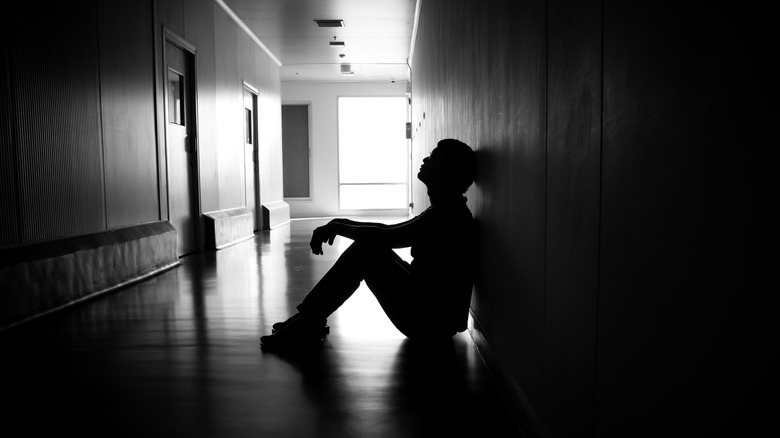Can Being Lonely Increase Your Risk Of Cancer?
Being lonely isn't just an emotional feeling — it can change your body physically as well. And with more research looking at the feeling of loneliness that seems to be prevalent in today's society, scientists are finding that feeling consistently lonely can even increase your risk for cancer.
A new study done at the University of Eastern Finland found that middle aged men who reported feelings of loneliness had an increased cancer risk. The study began nearly 40 years ago in the early 1980s, with 2,570 Finnish men participating. Within the cohort, 649 of the participants developed cancer since the beginning of the study, and researchers found that reporting feelings of loneliness increased the risk of cancer by around 10%, regardless of any other physical or mental lifestyle factors.
"It has been estimated, on the basis of studies carried out in recent years, that loneliness could be as significant a health risk as smoking or overweight. Our findings support the idea that attention should be paid to this issue," Siiri-Liisi Kraav, one of the primary researchers, said in the University of Eastern Finland press release.
How can someone avoid feeling lonely?
First, it's important to understand that loneliness and being alone aren't the same thing. That means you can be surrounded by people but still feel lonely, or you can be completely alone but not feel lonely at all. "The experience of loneliness is 100% subjective. Isolation is the objective state of being physically separate," Jeremy Nobel, a faculty member at the Center for Primary Care at Harvard Medical School, explained to The Harvard Gazette. "Loneliness is the self-perceived gap between our social connectedness and that which we aspire to have."
Loneliness reportedly affects between 25 and 60% of Americans, so if you feel lonely, you're not alone (via Harvard Health Publishing). If you want to fight loneliness, the first step is becoming aware of the fact that you're lonely, and wanting to change it. Once you've done that, it's time to start reaching out—even if you can't meet a friend for coffee in real life right now, you can hop on a five minute phone call, or even just exchange a few goofy texts. Additionally, doing nice things for others, whether those people are friends or you're helping at a place you volunteer at, can help alleviate feelings of loneliness. And of course, don't be afraid to seek professional help if you feel like you can't control these feelings (via the Cleveland Clinic).
If you personally aren't feeling lonely, you should consider reaching out to someone who might need the extra boost. "If every person who's in pretty good shape can make a commitment to reaching out to one person they are concerned might be lonely once a week, that would be a good thing," Richard Weissbourd, psychologist, senior lecturer at the Graduate School of Education, told The Harvard Gazette.


